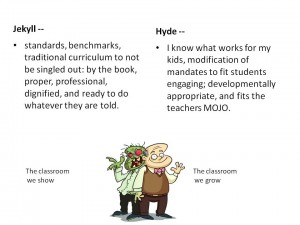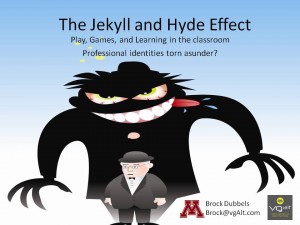Summary: As losses continue to mount, price cuts remain slow to materialize and more and more blockbuster releases are delayed until 2010, the PC and video game industry finds itself at a crossroads. The big question: Will it power up in time to save itself from going the way of the arcade? With the stakes higher than ever, we ask the field’s best and brightest what’s causing the biz to short circuit, whether the virtual landscape has permanently changed, and how to save interactive entertainment. Join us for the conclusion of our critically-acclaimed season opener as we discover whether or not it’s too late to hit restart.
Freefalling sales. Skyrocketing unemployment. Studios tanking left and right. Tune in for the first of a special two-part series as we ask: Is it ‘game over’ for thousands of developers and publishers – and millions of fans – worldwide?
This video segment came form Digital Trends and I thought it interesting and perhaps worthy of dialog.
What do you think?
Need to read more?
Ask any family who’s ever dealt with addiction: When a friend is ailing, collapsing under the weight of their own dependencies, only two courses of action exist. Either you sit down, shut up and let nature take its terrifying course, or pause, take a deep breath and do what duty demands… step in and stage an intervention. And speaking as a player, parent, professional, fan and longtime ardent admirer of this medium so many cherish and adore, let’s not kid ourselves. To put it bluntly – the time has come to take the game industry aside and show it some tough love.
The Jekyll and Hyde Effect calls into question approaches to accountability and implementation of mandated approaches to research-validated techniques and assessment in classroom instruction. Dissonance between teachers core beliefs about student learning and these new mandates, as presented to them, may be creating two different identities, two different classrooms, and two different sets of books to satisfy mandates and continue doing what they know works. This study utilized discourse analysis, coding teacher artifacts as outcomes of genre chains with themes from mandates, policy, and law for classroom changes in curriculum and instructional assessment tools, materials, and professional development. The informants from the studies and findings from analysis of the artifacts reveal that many teachers do not feel that what is good for the spreadsheet is good for kids. This tension in core beliefs about learning and instruction need not lead to conflict– integration of assessment and appropriate implementation could enhance teacher and student experience. The transformation of policy to implementation was seen as problematic and led to misunderstanding and conflict, often based upon an inability to see standards, benchmarks, and assessments integrated into engaging, play-like activities such as games rather than the controlled, direct instruction that might cause resistance and disinterest by students and instructors, but easy to identify by administrators. The presentation makes a case for the importance of play in engagement and comprehension through review of literature on intelligence measures and new research on embodiment theory and the indexical hypothesis. Then it give examples of implementation.
New models of comprehension and memory validate the value of active and playful learning for cognitive enhancement and generative transfer. Data on academic performance and engagement measures from five years of games, play, and virtual space learning in K-20 classrooms will be presented in the context of assessment measures using a model for assessing cognitive growth. This is contrasted with educator beliefs, the efficacy of play, and the limitations of models of teacher professionalism creating a Jekyll and Hyde Effect. Though interviews, artifacts, and surveys, K-20 educators have expressed a willingness to embrace games, but have been reluctant to do so publicly for fear of professional reputation, as well as the ability to implement such pedagogical change.
In this presentation, on overview of research, methodology, outcomes, and descriptions of implementation will be presented on how video games and virtual worlds were used to raise standardized reading scores. This evidence, methodology, and experience is presented with outcomes of surveys, interviews, and discourse analysis of teacher artifacts, and presents the institutional experiences of educators balancing the tension of using games and play, and the fear of being stigmatized as unprofessional at their teaching sites. The result begins to create a picture of creating two different sets of books, and two different teaching identities — Jeckyll and Hyde.







